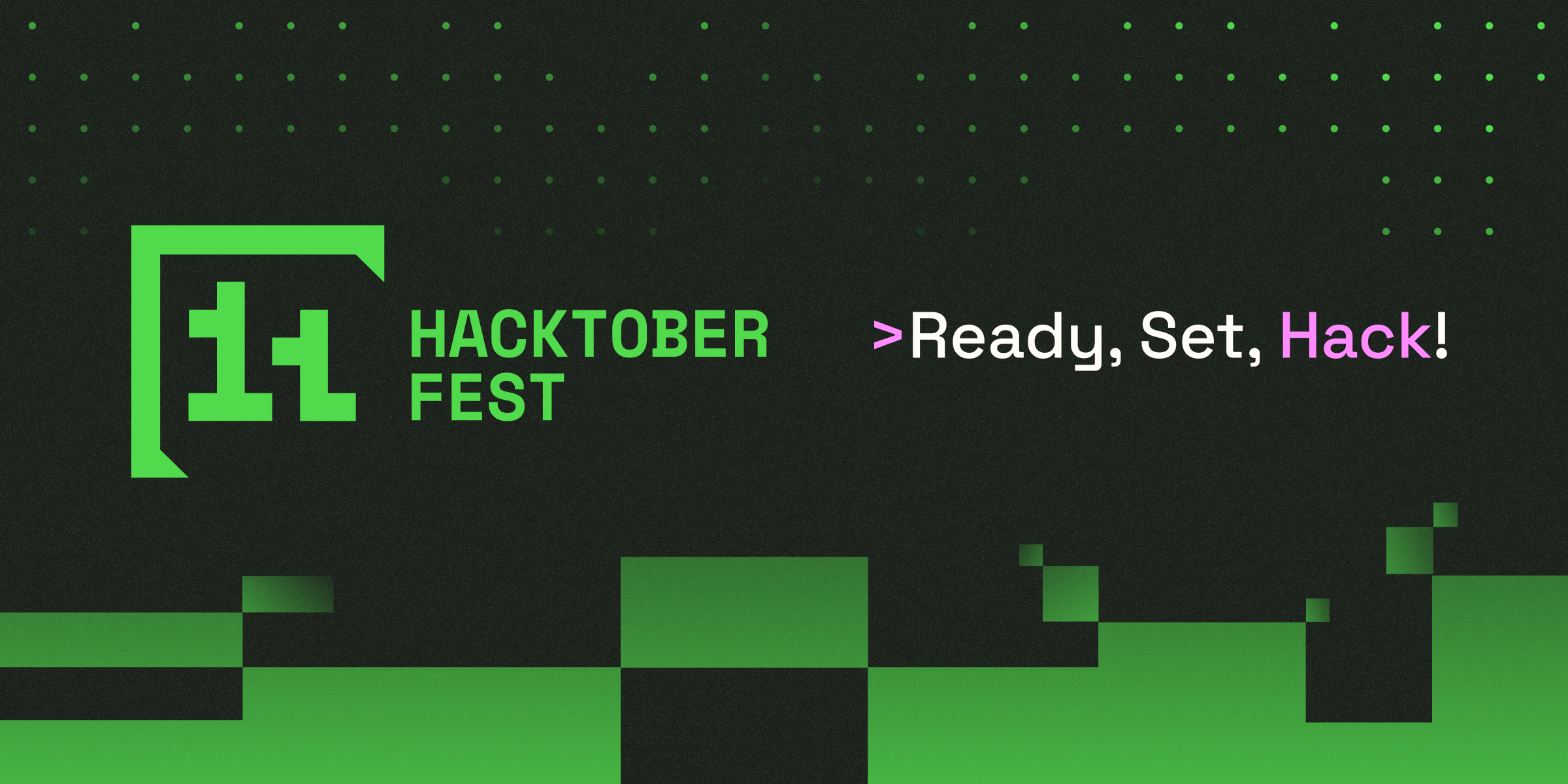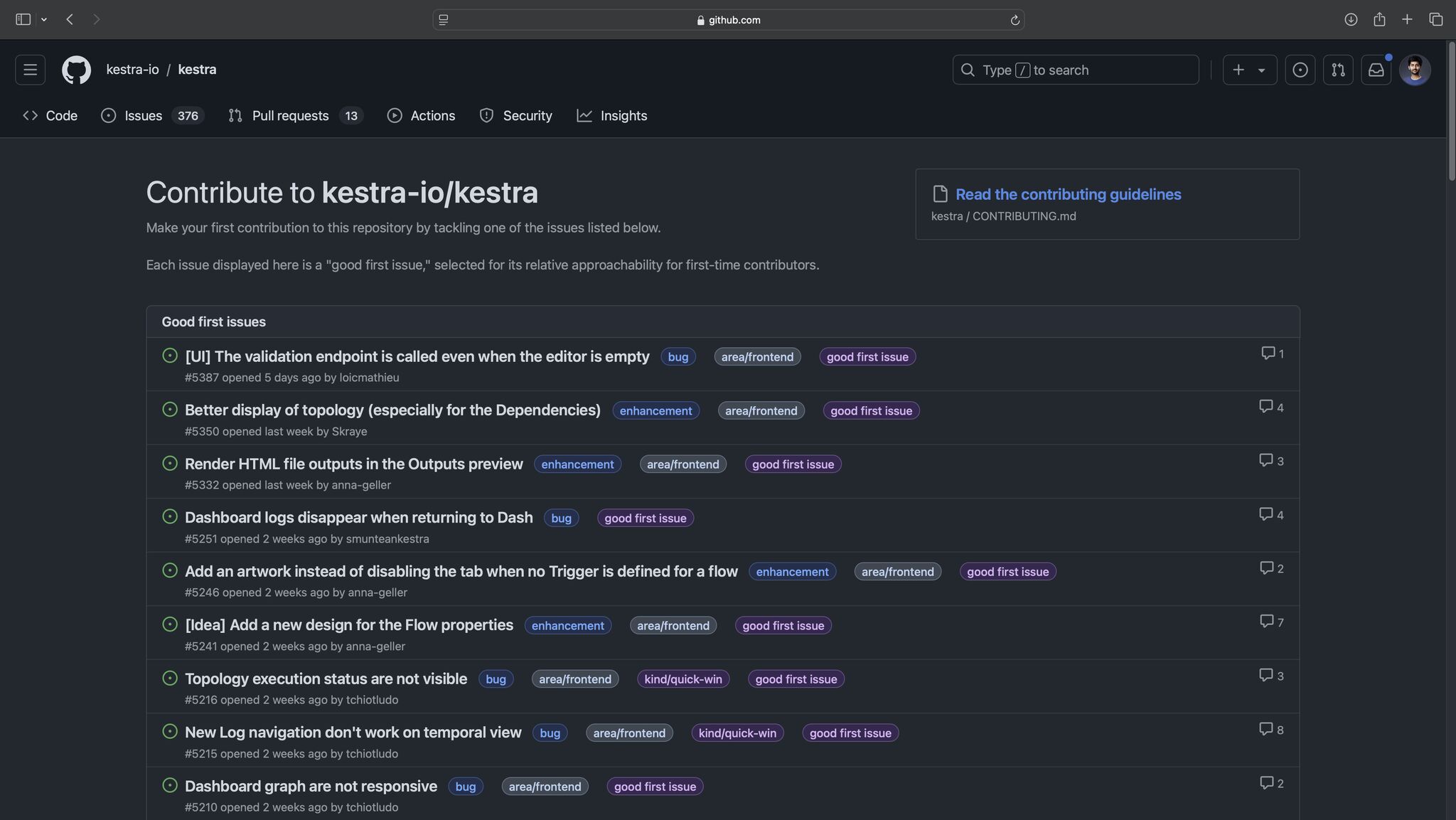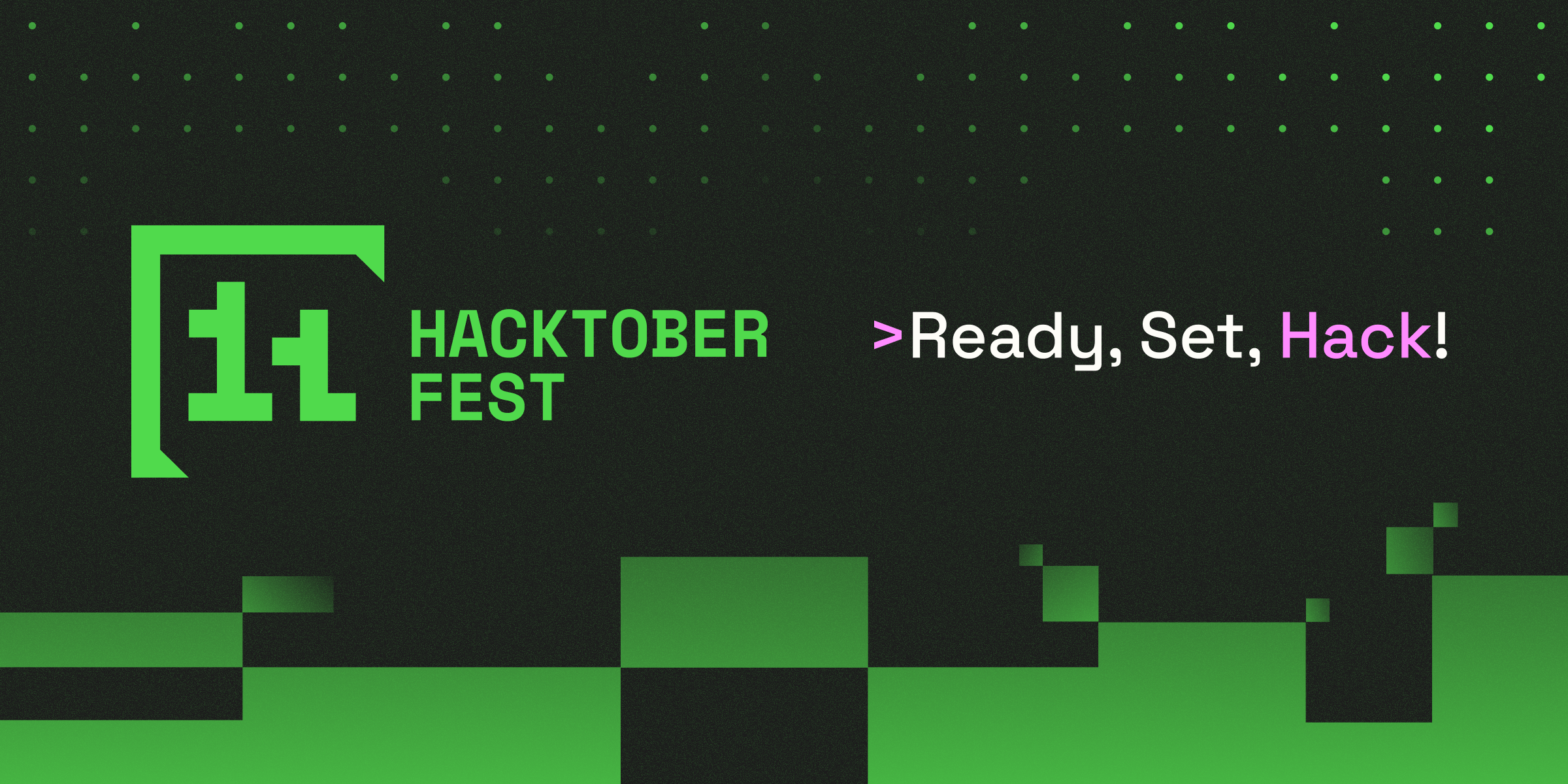5 Common Hacktoberfest Mistakes
 Kunal Kushwaha
Kunal Kushwaha
If you're new to open source and looking to contribute to large-scale projects used by enterprises globally, this guide is for you. A common question many beginners ask is, "Which real-world open source projects are beginner-friendly?" This article will help you navigate through some opportunities and resources to kick-start your journey into enterprise-level open source projects.
Beginner-Friendly Projects and Opportunities

Many companies are making it easier for beginners to contribute to their open source projects. For instance, Kestra, an open-source orchestration engine, has around 400 issues on GitHub, including many labeled as Good First Issues. With over 10,000 stars on GitHub and a growing community, it's a great starting point for new contributors. Kestra’s issues span across UI, documentation, and coding tasks in languages like HTML and JavaScript. You can explore the project and contribute by visiting their GitHub repository.
Hacktoberfest and Other Open Source Programs

Hacktoberfest is one of the most well-known open source initiatives, but it’s just the beginning. Several other programs also encourage open source contributions:
Google Summer of Code (GSoC)
LFX Mentorship Program
Outreachy
MLH Fellowship
These programs promote open source culture and help companies attract contributors. Many organizations also host their own open source initiatives to build community, showcase the use cases their projects solve, and encourage quality contributions.
Why Companies Support Open Source Programs
Companies participate in programs like Hacktoberfest to foster open source culture and attract contributors. For example, projects like Kestra benefit from the real-world value they provide, which attracts attention and contributions. A company's success in open source, however, isn't solely about growth and visibility; it also hinges on how welcoming and supportive their community is. Clear documentation and active communication channels, such as Kestra’s Slack community, are key elements that make it easier for new contributors to get involved.
Staying Engaged Beyond the Program
Contributing to open source isn't just a one-time activity during Hacktoberfest or similar events. The real value lies in staying engaged with the community beyond these programs. You don’t need to contribute every week, but maintaining a connection with the project will help you learn, grow, and contribute more meaningfully over time.
For instance, if you contribute to Kestra during Hacktoberfest, staying involved in their community can lead to long-term learning and growth. Even if you contribute less frequently, staying connected will help you build relationships and insights that can enhance your skills.
Mistakes to Avoid as a Beginner in Open Source
If you're just starting out, here are five common mistakes to avoid when contributing to large-scale open source projects:
1. Poor Communication
Good communication is critical. When asking for help, provide context about what you've tried, any errors you encountered, and specific questions. This helps maintainers understand your problem and offer targeted solutions.
2. Not Asking the Right Questions
Vague questions can be frustrating for maintainers. Make sure to ask clear, detailed questions and use the appropriate communication channels (e.g., don't ask technical questions in a general discussion channel).
3. Expecting Instant Success
Contributing to complex projects takes time. Don't expect to make a few pull requests and become a core contributor overnight. Stay patient, learn the project's structure, and gradually build your contributions.
4. Imposter Syndrome
Feeling like you don’t belong is common, especially in large projects. Remember, everyone starts as a beginner. Use unfamiliar technologies as an opportunity to learn and grow.
5. Lack of Empathy
Maintainers are often volunteers. Be patient if your pull request isn't reviewed immediately, and approach communication with empathy. Mutual respect is essential for a healthy open source community.
The Importance of Community and Documentation
A successful open source project depends heavily on its community and documentation. For new contributors, documentation is often the first resource they consult, so clear and detailed guides are essential. If you find documentation lacking, contributing improvements is a valuable way to get started.
For example, Kestra’s well-organized documentation makes it easier for newcomers to contribute meaningfully. Even small documentation improvements can have a lasting impact on the project.
Conclusion
Contributing to open source projects, especially large-scale ones, is a rewarding experience that extends beyond one-time events like Hacktoberfest. The true value lies in staying committed, building relationships within the community, and contributing over the long term.
If you're new to open source, start by identifying why you want to contribute, find a project you're passionate about, and use events like Hacktoberfest as a stepping stone. Continue contributing at your own pace, and over time, you'll grow your skills, network, and knowledge.
Shoutout to Kestra for collaborating with me on this blog.
Subscribe to my newsletter
Read articles from Kunal Kushwaha directly inside your inbox. Subscribe to the newsletter, and don't miss out.
Written by

Kunal Kushwaha
Kunal Kushwaha
Building a better future through technology and innovation.